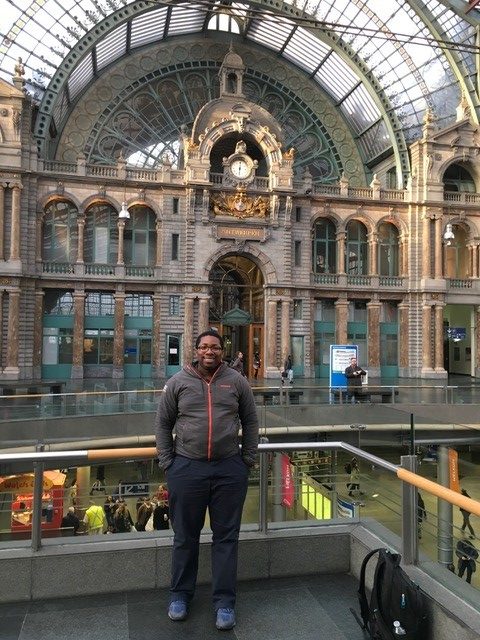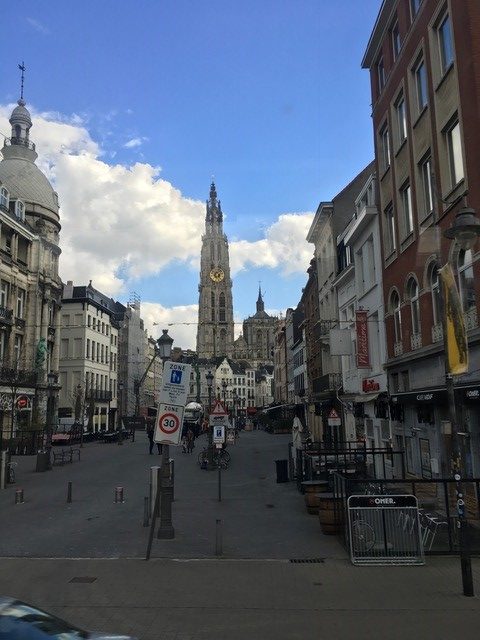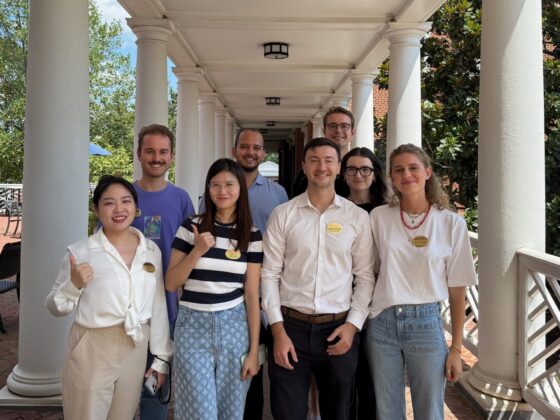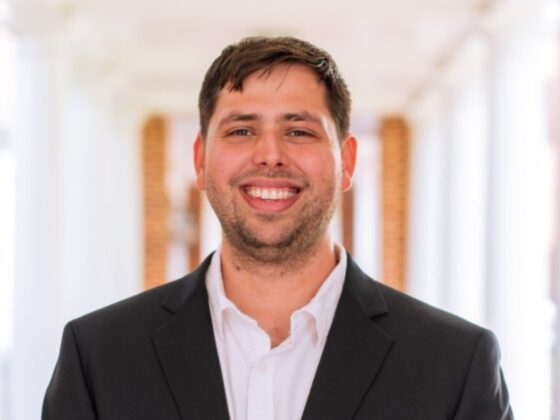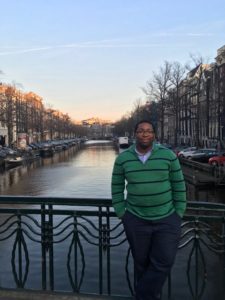 Alex Williams (MBA ’17) is a recent Darden graduate. He completed the Darden Worldwide Course (DWC) to Belgium and the Netherlands led by Dean Beardsley this March. In his own words (and photos), he shared reflections from the course:
Alex Williams (MBA ’17) is a recent Darden graduate. He completed the Darden Worldwide Course (DWC) to Belgium and the Netherlands led by Dean Beardsley this March. In his own words (and photos), he shared reflections from the course:
I was excited when Darden offered the European Union (EU) DWC and I immediately registered for it. The course asked us, as future business leaders, to understand the context of the EU, and the issues facing it, such as Brexit, and also how Belgium and Holland fit into the dynamics of the region. I gained a strong appreciation for each country’s position within the EU, and was able to improve my understanding of the complexities surrounding business culture in Europe.
One of our major takeaways was history is always present in Europe. We saw it in our visits to the Grand Palace in Brussels, the trip to Waterloo where we walked the battlefield where Napoleon faced his greatest defeat, and listening to the Royal Concertgebouw Orchestra play Mozart. We could not escape the history of both countries and the many wars across the continent that have shaped the relationships and business world to this day.
This history also extends to Brussels’ cityscape, and the continent’s prominence. Our tour guide touched on Leopold’s colonization, but I gained a deeper appreciation for the colonization’s impact and magnitude during our tour in Brussels. The greenhouses and exotic structures built during this period included the Japanese Tower and the number of people in the Congo who disappeared during this period are a testament to the greed and the wealth present during the time. Large companies are located in Belgium and Holland because these two countries have historically been relatively peaceful and are centrally located.
The trip to Amsterdam and seeing the Royal Concertgebouw Orchestra cemented the cultural significance of the Benelux region in my mind. When Robert Reibestein, former Senior Partner at McKinsey and Chair of the Royal Concertgebouw Orchestra, spoke to our group, I realized we were seeing the top orchestra in the world. Robert provided an explanation of the issues facing orchestras in the modern era, which include funding and competition, which are easily extrapolated to a business context, but also helped me understand opportunities to get involved in non-profit and cultural organizations. On a personal note, I love Mozart as a special treat, but what struck me about the concert is how it seemed to be an everyday activity for the Dutch.
When we visited GSK, there were signs in four different languages, and this made me think of how many different languages are spoken in Europe and how many business customs and norms a company operating there would have to deal with. Thomas Breuer, SVP & Chief Medical Officer, Head of Vaccine Value & Health Science – GSK Vaccines, mentioned that multi-cultural relations are something any company operating in Europe has to manage. This made me think of how European society places a higher emphasis on the group than the individual, and the inherent diversity of opinion and thought that any company in Europe encounters in its everyday operations. It is astonishing that a company can grow as large as some of the companies that we saw, and have such a diffusive employee base, speaking multiple languages.
Another takeaway I had from GSK is the strength of apprentice culture in Europe. Even if a person does not graduate from college, there are opportunities to engage productively in society through strong training programs. During our tour of GSK, we heard that the employees who worked in the clean room where the vaccines are created did not have to be college educated, but they could work their way up through a strong training program. Again, these opportunities contrast starkly against those available to similarly educated individuals in the United States.
Europe currently faces questions of how it transforms itself to compete in a digital world. I learned a lot from this course on topics of how culture, business, and government intertwine in a different geographical settings. I gained a deeper appreciation for the size, complexity, problems, and potential solutions that EU member countries need to address to remain competitive. Belgium and Holland, while smaller than France and Germany, are critical to the future of Europe, and can position themselves as a bridge to the rest of the continent through their influence, but also their openness to change.
